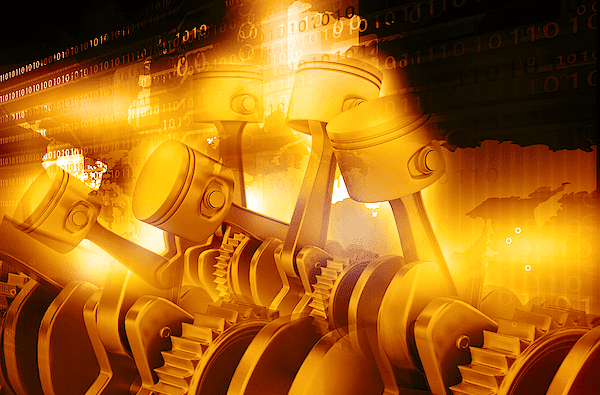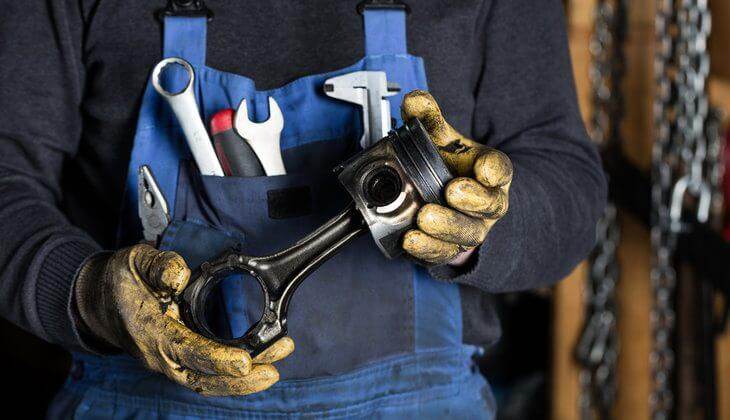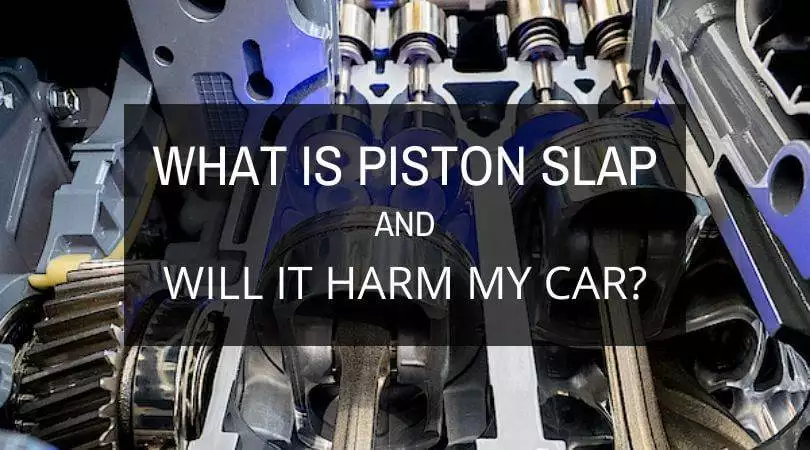Are you aware the GM LS engine is known for piston slapping when cold? It’s a rather loud and annoying knocking noise from the motor which is more common during cold starts. And while older engines from the 1980s and 1990s are more prone to piston slap, modern engines with lightweight aluminum pistons are not spared from this phenomenon.
Contents
What Causes Piston Slap?

We don’t want to sound like an overachieving engineer, but the piston slap is simply defined as engine noise created by the piston as it rocks from side to side in the cylinder wall. The pistons in modern engines are designed to go up and down to initiate combustion and produce power. But as the motor ages or the parts wear out, the piston tends to rock left and right inside the cylinder as it goes up and down during the combustion process.
This can be caused by many factors like faulty engine design, too much cold running clearance or piston-to-wall clearance, or worn-out pistons, piston rings, and connecting rods. Since modern engines have pistons with shorter skirts, an increase in the clearance between pistons and cylinder walls will cause the piston skirt to ‘hit’ the wall and cause a slapping sound.
How Will I Know If The Knocking Noise Is Caused By Piston Slap?
Easy. Start the engine on a cold morning and listen for a knocking sound. Depending on the age and condition of the vehicle, the sound can be loud enough to create an annoyance or gentle enough to be not heard by rookie or novice drivers. But in most cases (in the absence of any engine problems), piston slap tends to go away as the engine warms up. Heat causes the piston inside the cylinder to expand, which takes up the slack between the piston and cylinder wall and hence eliminating piston slap.
But if the sound doesn’t go away even if the engine is warm, this could be a sign the engine needs to be rebuilt.
How Is Piston Slap Different From Knocking Or Pinging?
Piston slap is usually noticeable during idling. In most cases, the slapping sound will go away as the oil pressure builds up and the engine gets hot. This ‘slapping’ sound is different from the engine knock you hear as you accelerate the vehicle. If you hear knocking or pinging sounds as you accelerate the vehicle or when the engine is under load, it could mean many things:
- The octane rating of the fuel is too low, causing incomplete combustion and engine knock. If this happens, the first remedy is to use higher octane fuel.
- Using incorrect spark plugs. Modern engines are running over strict and tight tolerances, and this includes the intensity and duration of the spark to initiate the combustion cycle. But if the spark is too weak or too strong (or if you’re using incorrect spark plugs), no amount of advance or retardation to the timing can prevent engine knock. Spark plugs have a certain heat range and are hence the reason why you’ll hear people refer to these things as hot or cold spark plugs. More reading on when to replace spark plugs.
- Engine knocking is also caused by carbon rap, or when there are too much carbon deposits on the cylinder walls. When deposits increase, it effectively reduces the volume of the cylinder, which leads to a drastic increase in compression.
But if you still hear loud slapping noises even when the engine is hot or when accelerating, it’s time to consult a mechanic. You may be dealing with a more serious problem other than piston slap.
Is Piston Slap Bad For My Engine?
It really depends on the make and model of your vehicle. As mentioned above, certain GM LS motors are known to have piston slap when cold, but it doesn’t necessarily affect engine performance, efficiency, or durability. In short, the piston slap is annoying, but it won’t harm your engine in any way.
But then again, continuous slapping is bad for the motor in the long run. The piston can only rock back and forth too much before losing compression altogether. If this happens, the motor will run roughly, burn oil, and emit thick smoke from the tailpipe during idling. The problem gets worst as you step on the gas pedal or increase engine speed.
Is There Anything I Can Do To Prevent Or Lessen Piston Slap?

Unfortunately, a severe piston slap can only be stopped by rebuilding the engine. But under normal circumstances, here are some of the things you can do to prevent or lessen the slapping noise if the engine is cold.
- Try using synthetic motor oil with a lower viscosity rating. In some cases, sufficient and adequate lubrication is enough to prevent or lessen the slapping noise. Thinner motor oil is pumped more readily and easily inside the engine, which shortens the length of time the oil reaches the high-friction components upon startup. For example, using 0W-40 instead of 10W-30 motor oil will improve cold start lubrication and may be enough to eliminate piston slap.
- Never skip oil changes. If the manufacturer suggests changing the oil every 5,000 miles, stick to that plan. Also, make sure to use always use the right type of motor oil. Do not use semi-synthetic motor oil if the engine requires a full-synthetic blend.
- Avoid upgrading the spark plugs. Certain engines are designed to run using certain spark plugs. Unless you’re dealing with a tuned motor, there’s no need to upgrade or use better spark plugs.
Conclusion
Generally speaking, piston slap will not harm your car’s engine, but only if it occurs during cold starts or idling. However, if the noise is excessively loud or annoying, it’s better to bring your car to a mechanic and have the problem diagnosed immediately.

